
Bad Girl is a 1931 American pre-Code drama film directed by Frank Borzage and starring Sally Eilers, James Dunn, and Minna Gombell. The screenplay was adapted by Edwin J. Burke from the 1928 novel by Viña Delmar and the 1930 play by Delmar and Brian Marlowe. The plot follows the courtship and marriage of two young, working-class people and the misunderstandings that result from their not having learned to trust and communicate with one another. The film propelled then-unknown actors Eilers and Dunn to stardom. It was nominated for three Academy Awards, including Best Picture, and won for Best Director and Best Adapted Screenplay.

Claire Trevor was an American actress. She appeared in 65 feature films from 1933 to 1982, winning the Academy Award for Best Supporting Actress for her role in Key Largo (1948), and received nominations for her roles in The High and the Mighty (1954) and Dead End (1937). Trevor received top billing, ahead of John Wayne, for Stagecoach (1939).
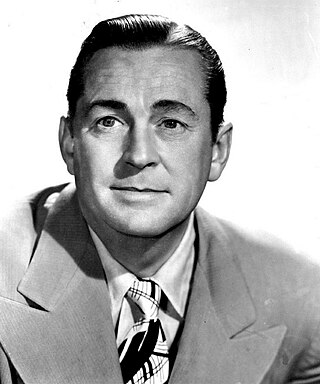
James Howard Dunn, billed as Jimmy Dunn in his early career, was an American stage, film, and television actor, and vaudeville performer. The son of a New York stockbroker, he initially worked in his father's firm but was more interested in theater. He landed jobs as an extra in short films produced by Paramount Pictures in its Long Island studio, and also performed with several stock theater companies, culminating with playing the male lead in the 1929 Broadway musical Sweet Adeline. This performance attracted the attention of film studio executives, and in 1931, Fox Film signed him to a Hollywood contract.

Quick Millions is a 1931 pre-Code crime film directed by Rowland Brown and starring Spencer Tracy, Marguerite Churchill, Sally Eilers, and featuring George Raft as the sidekick with a solo eccentric dance performance.

Dorothea Sally Eilers was an American actress.

Central Airport is a 1933 American pre-Code aviation drama film directed by William A. Wellman, based on the John C. "Jack" Moffitt story, "Hawk's Mate". The film stars Richard Barthelmess and Sally Eilers. Central Airport was produced and released by Warner Bros., on April 15, 1933. John Wayne had an uncredited part in the film, playing a co-pilot, and this film features his first on-screen death.
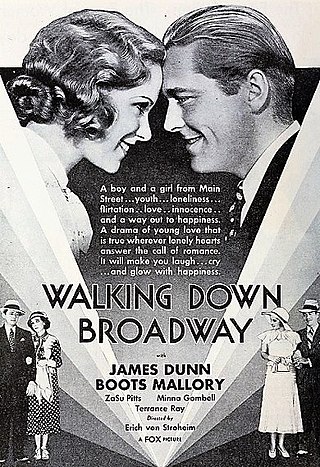
Hello, Sister! is a 1933 American pre-Code drama-romance film produced by Fox Film Corporation. It was directed by Erich von Stroheim, Raoul Walsh, and Alfred L. Werker, although no directorial credit is given. The film is a re-edited version of von Stroheim's now-lost film Walking Down Broadway.

Shadows Over Shanghai is a 1938 American drama film directed by Charles Lamont and starring James Dunn, Ralph Morgan, Robert Barrat, and Paul Sutton. Set in Shanghai during the Second Sino-Japanese War, the plot centers on the efforts of Japanese and Russian espionage agents to get their hands on an amulet which is the key to a $5 million fund meant to help China purchase munitions. Footage from the bombing of Shanghai during the 1937–1945 war was incorporated into several scenes.

Texas, Brooklyn & Heaven is a 1948 American black-and-white romantic comedy film directed by William Castle and starring Guy Madison, Diana Lynn, James Dunn, and Florence Bates. A reporter in Dallas, Texas, goes to New York with the dream of becoming a playwright. En route, he picks up a hitchhiker who wants to visit Brooklyn and live with horses. The two encounter a variety of zany characters living in Brooklyn before returning to Texas together to live on a horse ranch. The script was based on the best-selling 1943 novel Eddie and The Archangel Mike by Barry Benefield.
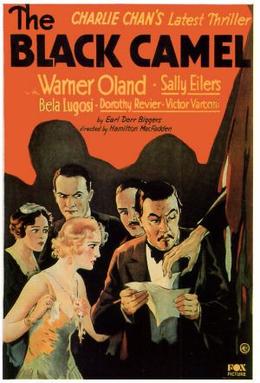
The Black Camel is a 1931 American pre-Code mystery film directed by Hamilton MacFadden and starring Warner Oland, Sally Eilers, Bela Lugosi, and Dorothy Revier. It is based on the 1929 novel of the same name by Earl Derr Biggers. It is the second film to star Oland as detective Charlie Chan, and the sole surviving title of the first five Chan films starring Oland. The Black Camel marked the film debut of Robert Young.
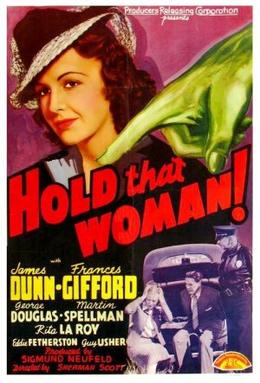
Hold That Woman! is a 1940 American crime comedy film directed by Sam Newfield and starring the husband-and-wife team of James Dunn and Frances Gifford. The film follows the adventures of a skiptracer and his girlfriend as they attempt to repossess a radio that has not been paid for. Unbeknownst to them, a bag of stolen jewels has been concealed inside the radio by a gang of criminals.

Sailor's Luck is a 1933 American pre-Code romantic comedy film directed by Raoul Walsh for Fox Film Corporation. It stars James Dunn, Sally Eilers, Victor Jory, and Frank Moran.

The Caribbean Mystery is a 1945 American film noir mystery film which marked the directorial debut of Robert D. Webb. It is the third film adaptation of the 1933 novel Murder in Trinidad by John W. Vandercook to be produced by 20th Century Fox. Starring James Dunn, Sheila Ryan, and Edward Ryan. the plot finds a Brooklyn detective summoned to a Caribbean island to solve the disappearance of eight geologists who had visited an alligator-infested swamp. The lead role was rewritten especially for Dunn after his successful film comeback in A Tree Grows in Brooklyn (1945), also produced by 20th Century Fox.
Let Us Be Gay is a 1930 American pre-Code romantic comedy-drama film produced and distributed by MGM. It was directed by Robert Z. Leonard and stars Norma Shearer. It was filmed concurrently with and based upon the 1929 play by Rachel Crothers starring Tallulah Bankhead, which ran for 128 performances at London's Lyric Theater. Critics generally preferred Tallulah's rendition to Shearer's.

Disorderly Conduct is a 1932 American Pre-Code film directed by John W. Considine Jr. starring Spencer Tracy, Sally Eilers and Ralph Bellamy. It was the seventh picture Tracy made under his contract with Fox Film Corporation, and the first to make a profit since his debut Up the River.

Living on Love (1937) is an American romantic comedy film released by RKO Radio Pictures. Directed by Lew Landers, it stars James Dunn, Whitney Bourne, and Joan Woodbury. The film is a remake of the RKO film Rafter Romance (1933). It is one of the "lost RKO films" owned by Merian C. Cooper and only re-released in April 2007 when Turner Classic Movies acquired the rights and aired all six films on its channel.
Made on Broadway is a 1933 American pre-Code comedy film directed by Harry Beaumont and written by Courtney Terrett. The film stars Robert Montgomery, Sally Eilers, Madge Evans, Eugene Pallette, C. Henry Gordon and Jean Parker. The film was released on May 19, 1933, by Metro-Goldwyn-Mayer.

Over the Hill is a 1931 American Pre-Code black-and-white melodrama film directed by Henry King for Fox Film Corporation. Starring Mae Marsh, James Dunn, Sally Eilers, and Olin Howland, the story concerns a young mother who devotedly cares for her children but when they grow up, most of them turn their backs on her and she has no choice but to go live in the poorhouse. The film is a remake of the 1920 silent film Over the Hill to the Poorhouse, which had been a major box-office hit for Fox. The story was based on a pair of poems by Will Carleton. Over the Hill also inspired the South Korean film adaptation Over the Ridge (1968). The production marked Marsh's first sound film and the second pairing of Dunn and Eilers, who had achieved celebrity in Fox's Bad Girl released earlier in the year.
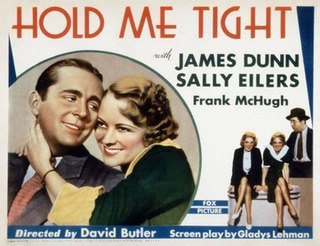
Hold Me Tight is a 1933 American pre-Code drama film directed by David Butler and written by Gladys Lehman. The film stars James Dunn, Sally Eilers, Frank McHugh and June Clyde. The film was released on May 20, 1933, by Fox Film Corporation.
Trial Marriage is a 1929 American pre-Code drama film directed by Erle C. Kenton from a story by Sonya Levien. Produced by Harry Cohn for Columbia Pictures Corporation, the film was released on March 10, 1929. Charles C. Coleman was assistant director. The film was released in two versions, in silent and with sound.


















